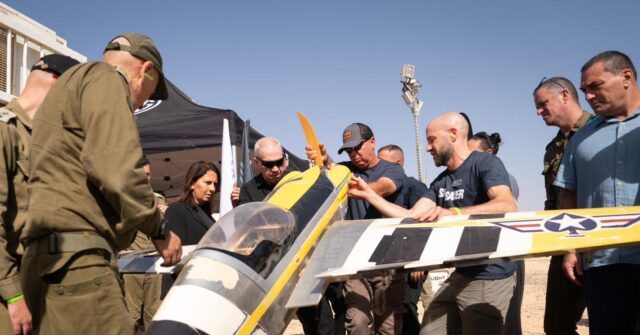Israel is currently responding to a significant drone strike by Hezbollah on an Israel Defense Forces (IDF) base that resulted in the death of four soldiers and numerous injuries. The drone attack, which caught Israeli forces off-guard, highlights the urgent need for the enhancement of Israel’s drone defense capabilities. Such incidents prompt Israel to reinforce its focus on innovation and private sector participation in developing robust defense systems. In light of this attack, the Israeli Ministry of Defense, under the guidance of Defense Minister Yoav Gallant, is fast-tracking the testing of private sector solutions to bolster drone defenses, indicating a shift towards proactive measures in countering emerging threats.
In a notable display of collaboration between government and industry, officials from various defense and innovation sectors came together to conduct a trial aimed at intercepting Unmanned Aerial Vehicles (UAVs). Key figures from the Israeli government, including Gallant and the Minister of Innovation, Science and Technology, Gila Gamliel, oversaw a first-of-its-kind event where eight different Israeli companies presented their technological solutions. This trial reflects Israel’s commitment to harnessing private industry expertise to address security challenges posed by drones and marks a significant step towards integrating advanced technological solutions in military operations.
The testing event, held at a designated facility in southern Israel, saw participation from established defense companies such as Elbit Systems and Rafael, alongside innovative startups. This competitive trial was part of a newly initiated process aimed at identifying effective interception methods in light of the evolving nature of drone warfare. Each participating company demonstrated their respective UAV interception technologies across a spectrum of flight altitudes and ranges, providing valuable insight into the effectiveness of these innovations. The results of these tests are expected to lead to the selection of technologies for expedited production and deployment, hinting at a rapid evolution in Israel’s aerial defense strategy.
Israel’s existing aerial defense capabilities have proven effective against traditional threats, such as missiles and artillery shells. However, the recent drone strike illuminates challenges presented by smaller, lower-flying threats that traditional radar systems may struggle to detect. The increasing sophistication of drone technology, particularly from adversaries like Iran and Russia—both of which supply Hezbollah—creates a pressing need for Israel to continuously upgrade its defense systems. Failing to keep pace with these advancements poses a risk of falling victim to future drone attacks, a reality that underscores the urgency of innovation in Israel’s defense approach.
In response to the drone strike and the complexities of modern aerial threats, Israel’s defense leadership aims to foster an environment of rapid innovation. The Ministry of Defense expressed a commitment to selecting multiple technologies that have passed initial tests for further developmental acceleration. This strategic decision not only seeks to enhance Israel’s current defense infrastructure but also embodies a broader recognition of the importance of flexibility and adaptability in military planning. A fast-tracked approach to developing effective interception systems is essential in responding to the dynamic security landscape, reinforcing Israel’s stance as a vanguard of defense technology in the region.
The proactive measures undertaken by Israel exemplify a systematic response to the challenges posed by non-traditional warfare and emphasize the importance of public-private partnerships in defense innovation. By leveraging the expertise of private defense firms and promoting a competitive environment for technological advancement, Israel positions itself to enhance its strategic capabilities in the face of evolving threats. As the geopolitical landscape remains fraught with tensions, particularly in the context of drone warfare, the development of robust interception systems will play a critical role in maintaining Israel’s security and addressing the multidimensional challenges posed by its adversaries.

